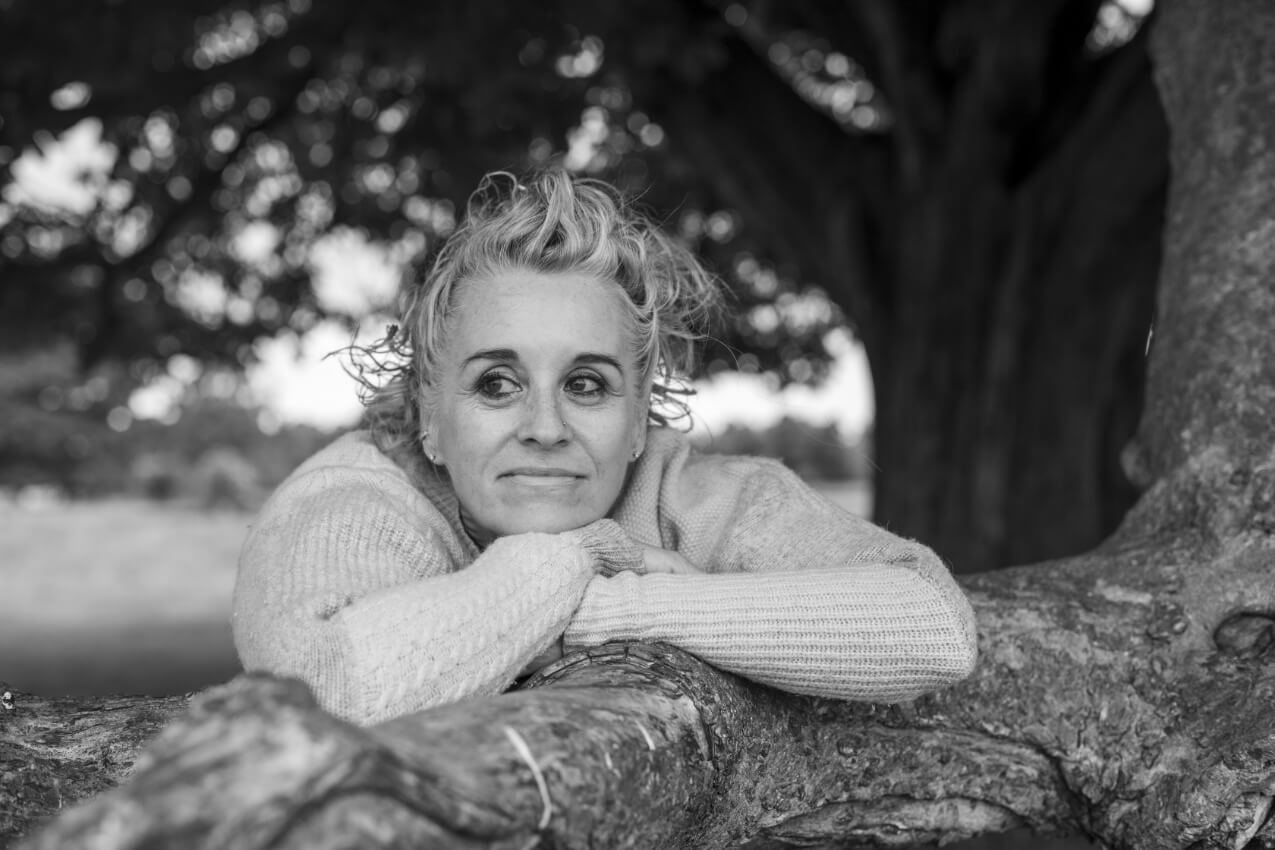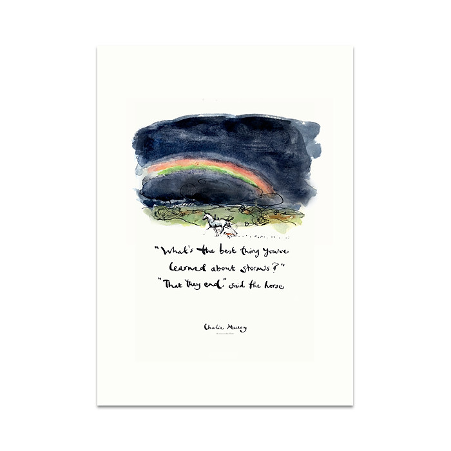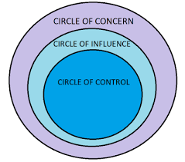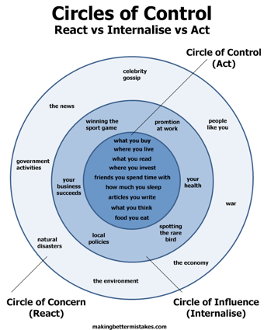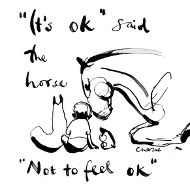As a coach of some years, I have always been focused on results for my clients and being able to discernibly move them forwards. Whether that is in terms of perspective, mindset, or physical changes where I started my journey with a big focus on nutrition, exercise, breath and energy management.
It is the latter which led to a deeper interest in “emotere” – the Latin derivative for the word emotion which literally means “energy in motion”. Interestingly enough the emotion itself is usually neutral but it is the focus and attachment we place on it that will determine the energy it gives us or takes from us. Each emotion causing a chemical reaction in our body. In turn, the energy we give or take from others!
This became a fascination for me from leading talks in organisations around changing the energy to working with teams to create successful environments where the energy feels positive, motivating and uplifting.
If I was fascinated to understand how to proactively micro manage our health and wellbeing and even success, physically and mentally, then to optimise this and incrementally up our game by autonomously managing our bodies as a mass of chemicals – (either all interacting and producing ‘health and wellbeing’ or ‘dis- ease’ in some shape or form,) going deeper here emotionally was imperative for me.
So here I am as I delve further into my emotional development and training to become a Riders and Elephants Master Practitioner with all the learning and growth that involves. I am already actually 4 months in as I started the journey by completing the module on Change prior to jumping on board in November to become the Master practitioner.
I have had many aha moments, realisations and developed so many new tools and skills along the way and while finding the journey insightful personally, the biggest break throughs and impact has definitely been while working with others. I am finding options to use it not only professionally but in my own personal family setting, as a mother, partner and friend. The more I use it the more I am finding further opportunities to open up vulnerable and powerful discussions.
I have therefore tried to take advantage of every opportunity to create space to experiment with the Emotional Culture Deck, and associated tools and canvases but also importantly to adapt them so that they are right for my various clients among a range of other tools I may bring out. I don’t ever want to feel I am forcing my agenda – indeed this goes entirely against my code of conduct so with full cognitive purpose I am using when it feels right. This means appropriately, timely, sensitively, in a psychologically safe environment and wholly to reach the outcomes of each respective client.
In that way one of my learns is that they form part of a wonderful smorgasbord of options and insights in getting to know ourselves and such an important part of contextual understanding of where we are at any given point. To enable us to tune into our bodies.
To respect the body and the stickier more challenging emotions.
To honour our needs.
Not only in the day, but business wise in any quarter of the year, or indeed, any juncture of our lives. A way of taking stock, tuning into the voice of our feelings ( letting the heart lead rather than the head and giving it the reins to do so) either collectively or individually and then with that information purposely choosing the behaviours and actions we want to move forward with.
I firmly believe that health has to be evidenced and advanced by taking advantage of any and every test we are able to do physically to give us a clear and accurate picture enabling us to take informed decisions.
Making ‘purposeful’ decisions, by choosing our emotions and how we want to feel, and knowing how this shows up for us physically and mentally is also a vital part of being in control. Noticing when our heart rates go up, when our cortisol shoots up, where we improve our Heart Rate Variability are all ways of knowing where we are emotionally. In addition to being able to call out at any point what emotion we may be ‘in’. Bio feedback.
In a world where I am always asked for the Key Performance Indicators for the work I do on wellbeing, it is evidenced that organisations that do this deep work will see hard results in engagement, absenteeism, recruitment, loyalty, motivation, job satisfaction and the big one – financial performance. Team cohesion brings optimism and cohesion and the employees involved will become more resilient.
Emotions are not the fluffy ‘nice to haves’ people often think they are.
But only if we all get used to talking about and honouring the emotions that show up for us. A compelling set of reasons for leaders to lead ‘emotionally’.
What have I started doing differently?
One of the things I have started doing as a non negotiable is a temperature check of my emotional state before I begin facilitating a session, either with an organisation or 1-1. Naming my top emotions and understanding the physiological impact and moving my body to a state of flow, and calm in order to best serve clients and do my best work. I have always prepared mentally for success but I am coming to flow using HeartMath and focusing on the emotions I need to lead with in order to be successful so much more. How do I want to show up?
Along with this, being vulnerable, open and transparent in starting group sessions with the Weekly Retro where we all share the emotions in which we have been ‘living’ and the story behind them. A beautiful place to start is context and we all meet one another in the same space knowing where we have come from, how it may have affected us and where we are today which may impact us moving forward. To raise perspective. My job as a coach.
My reflections on the ECD as a tool itself
- The adaptability/versatility of the tool seems to come out in every piece of reflection work I do. How to use just a part of it or all of it and to make it work even with the constraints of varying time available. How it can be tailored to match different situations – we are all going through change even when we think we are not. How using the emotion cards actually de personalises some of this and can take the heat out of emotionally charged conversations. It can flex any way we want it to. It can be super simple letting the cards do the work. It can take the heat out of the moment talking about emotions with 3 point conversations
- The time and space we need to reflect and honour just one beautiful question which can be so powerful in itself. Uncomplicated. Allowing for vulnerable and transparent conversations .Not new to me as a coach and reminds me of my training where we learned to get comfortable in allowing the longest silences out of which something profound and beautiful can emerge. We cannot rush this work and the ECD creates the safety and space to do this.
- The nuances of emotions. It is not good enough just to let people choose a card without going further to ask what exactly this word means for them in my work. There are similar cards within the decks so sometimes digging deeper to discover how individuals interpret the words on the cards gives important insight into what is going on, how they ‘see the world’, their place in it right now and on occasion how they may ‘interact’ with the possibilities coming out of it.
Other tools
Journalling made simple!
I’ve worked with journaling for many years now both for myself and with clients. For some it is the bedrock of behaviour change and self awareness. For others it is clunky, feels awkward and a chore. Sometimes people benefit from a process or guide to help them do this more quickly and easily and make reflection accessible. There are SO many ways to do this with the plethora of physical (and online ) tools that complement the ECD but below just a couple;
Intention Setting Conversation Guide – I am finding this is a brilliant tool to mark a line in the sand at any point you want to; new year, new term, new quarter, new job, new team, new challenge. Setting the tone for the period ahead by choosing which emotions you want to lead with and come back to. I have had some revelatory results with a small Meet Up group of clients leading with this tool out of which has flourished a series of rituals and ongoing self awareness work for the group.
Weekly Retro – a guided route examining where you may have ‘lived’ emotionally as you leave the week behind you. Highlighting where you may have positively impacted events, people and situations in this time. Something we don’t always or often pause to reflect on. I am using this with a coaching group currently as a ritual to support a big focus on Self Esteem. This is a concept unashamedly borrowed but like Gratitude practice it can flip up our state and quickly change perceptions.
Other more random observations;
Safety – Depending on context, people may feel vulnerable and awkward about sharing emotions with colleagues or people they don’t know well. Creating a safe psychological space is vital so that people will open up and feel they can contribute openly. That will mean different things to different people and checking in before diving in is imperative to success. Safety is a different thing to vulnerability.
Repletion to Depletion – I have used the HeartMath depletion to renewal grid with clients for many years now to understand whether my clietns may be ‘living’ predominantly in a state of repletion ( coming to the parasympathetic body) or depletion, in a state of stress, cortisol driven and with high heart rates –
( sympathetic body). Understanding which emotions cause our heartrate to rise and how we come into calm. Using the Weekly Retro and asking clients to pick both the more challenging emotions they may have felt over the last week, as well as those that felt more positive, I can then ask them to rank them – together into those that were more prevalent most of the time. The division of black and white cards shows me immediately whether they are in depletion or renewal and I am loving the simplicity of a quick ‘temperature check’.
Versatility – The adaptability of the ECD. How to use just a part of it or all of it and to make it work even with the constraints of varying time available. How it can be tailored to match so many different situations – we are all going through change. I am loving using this with my family as much as using it with my client groups and finding opportunities at so many junctures of the day.
De-Personalised Conversations – Using the emotion cards as a focus actually de personalises the very difficult and awkward conflict that may be part of both professional and personal life and can take the heat out of emotionally charged conversations.
Rituals V Habits – I am loving the use of rituals and see how these will make a quantifiable difference to change and sustained change. As a coach around habits for over 20 years I am changing my language to define the difference. ‘Rituals’ definitely have more positive energy around them and different connotations. Habits are so often associated with behaviours we believe we ‘should’ or have to change. Rituals are purposely led to support beliefs.
Remote management – a process to get comfortable with but using the ECD deck online with clients works well and I’ve had great success with this so far.
Evidence – One of the most interesting things I am learning more of is simply the growing body of evidence behind “doing this work” showing the success of organisations that undertake this kind of deeper work on emotional culture.
Regular Emotional Check Ins – a piece of work culture crafting with a unique business over 2 weeks illustrated how much the leaders had changed week on week. How the context of that week i.e what we are living through has a deep effect on the work and how we are able to show up. Not least how stressful tax returns and financial issues deeply shake our sense of security and the values at the base of Maslow’s triangle. If we don’t have the baseline sorted, how can we address the finer issues. We all need to develop a practice of self awareness so we can call out our emotions at any point in the day.
Emotional Accessibility – although people attend or show up with pre conceived ideas and may be cynical, even guarded, once we get going these are the ones that can be sometimes be most engaged. Given the space to talk about emotions sometimes once we start, we can’t stop.
Creating personal vulnerability – I think as a coach we are trained not to necessarily do or be this as part of our code of conduct. The time we give our clients is not about us or our views or transference in any way. But in encouraging work on deep emotions and as part of creating the safety I think limited personal vulnerability creates our human connection, acknowledges we are all dealing with something and encourages a safer space.
Tracker – I love the use of the tracker as a HR professional and cannot wait to introduce this to organisations supporting them to keep it alive in appraisal conversations and hopefully in external 1-1 coaching conversations too
Arm around the team – I am often invited in to work with teams who may be struggling. Perhaps with change, relationships, a project. I love the fact that the white cards ( notably the more challenging emotions) can be used with these teams and in these situations as the conversations are opened up and create humanity around those difficult feelings and then of course deciding collectively how to mitigate and help one other minimise them.
Challenges – for me – time! Always time. Such invaluable, soulful work. Always more to do, explore, learn from it.
Emotion is energy in action. Energy is literally everything. We can leak our emotions and therefore have a positive or negative effect on the people around us. Vital, imperative work and the more awareness I can continue to bring to this the better.
Use the #1 game for better workplace culture to re-humanise the places you work. Check out The Emotional Culture Deck. Acquire emotional super-powers that will bring new life, value and depth to how you lead. Learn more here: www.ridersandelephants.com/the-emotional-culture-deck
